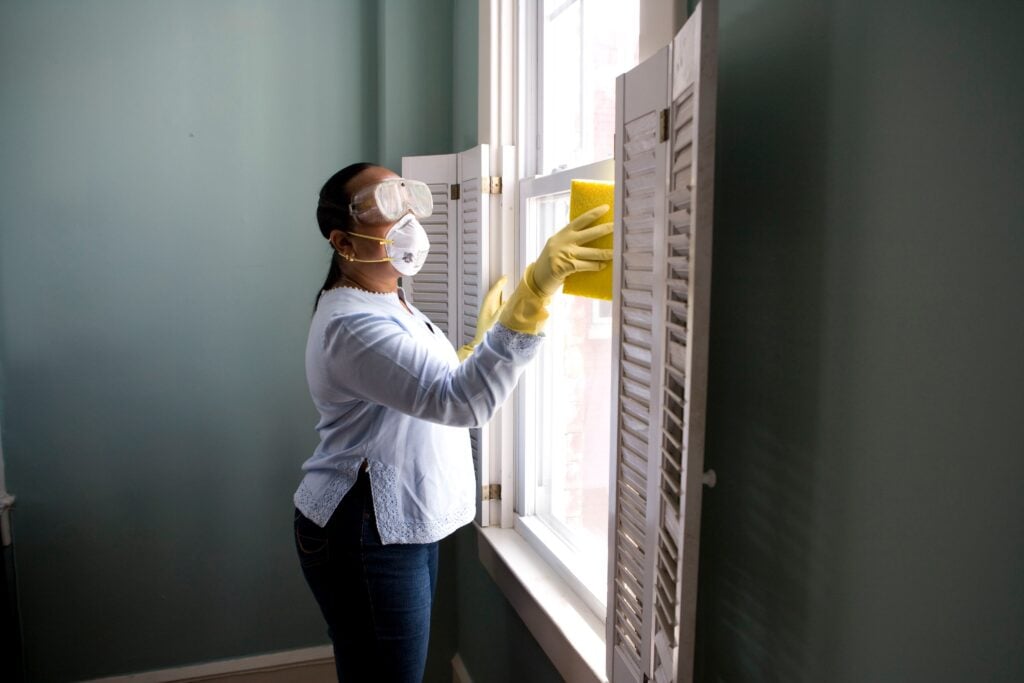How Much Will The Council Pay Towards Care Home?
According to official NHS statistics, the gross expenditure on care homes by local authorities during 2019-2020 was £ 19.7 billion. This is a 4.9 per cent increase (in cash terms; the real term increase is 2.4 per cent) from the previous terms; amounting to £918 million.
During this time there were 1.9 million requests for adult care; which comes down to a daily count of 5,290 requests per day. Further estimates suggest that out of all the claims made for care homes, half of them are state-funded.
How Much Will The Council Pay Towards Care Home?
Care home fees can be borne by the state, partially or wholly, depending upon the circumstances of the claimant or they may be self-funded, partially or wholly by those in care. According to estimates, nearly half a million people in the UK need a care home facility, Out of these 50 per cent of care home residents are self-funded while the rest of them are state-funded.
The amount that one pays towards their care costs depends on whether they live in England, Scotland, Northern Ireland or Wales (each country has their capital thresholds that determine the claimant’s contribution as compared to that of the state) as well as the following financial aspects of the claimant:
- income
- savings
- investments
- property
The following criteria are applicable while calculating the amount of care home fee borne by claimants and councils each:
- If someone has savings over £ 23,250, the claimant will have to bear the entire cost of the care home fees
- If someone has savings of £14,250–£23,250, the claimant will have to contribute most of their weekly income towards care home fees. They will also pay an assumed extra amount of £1 per £250 of capital that they have
- If someone has savings below £14, 250, the claimant will not be required to pay for their care home fees from this amount and will have to pay from their weekly income
If a homeowner moves into a care facility indefinitely and there is no claim on the residence of their house (this means that there is no family member or a qualifying dependant living in their house) the council may then seek sales of their property. However, this too does not take place on an immediate basis. Yet, in such situations, the homeowner may not qualify for care costs to be taken care of by the council.
Even if the council bears their expense in the short term, they will recover the expense from the proceeds of the sale of the house. This is called a deferred payment and may be considered when the applicant has a capital of around £23,250 (excluding the value of their house).
To assess the topic in detail, we will explore the following areas through this article:
- Can Council Take House To Pay For Care?
- How Much Savings Can You Have Before You Have To Pay For Care?
- How Are Care Home Fees Paid For?
- How To Avoid Selling Your Home To Pay For Care?
- Who Is Eligible For A Deferred Payment Agreement?
Can Council Take House To Pay For Care?
No, the council will not forcefully claim your house to pay for care especially if it is in use of your spouse/partner or any qualifying dependant(s); which include the following:
- spouse/civil partner/unmarried partner
- a close relative over 60 years of age
- a close relative below 16 years of age (legal dependant)
- former spouse or partner if they are a single parent
If a homeowner moves into a care facility indefinitely and there is no claim on the residence of their house (this means that there is no family member or a qualifying dependant living in their house) the council may then seek sales of their property. However, this too doesn’t take place on an immediate basis. Yet, in such situations, the homeowner may not qualify for care costs to be taken care of by the council.
Care costs are means-tested. This means if someone needs care but is unable to bear the expenses the council takes care of them. This is a decision taken after a detailed financial assessment of the eligible individual, their income, savings and property. To learn more about when the council might pay for your social care you may want to research on your own prior to making a decision.
How Much Savings Can You Have Before You Have To Pay For Care?
If you are a UK resident, the amount of savings you can have before having to contribute towards care home fee depends on whether you live in England, Wales, Northern Ireland or Scotland. Below is the threshold for each country:
- England: £23,250
- Wales: £50,000
- Northern Ireland: £23,250
- Scotland: £28,750
Anyone who holds savings above this amount will have to contribute towards their care home fees until their savings fall below this threshold. When that homes, claimants will be able to receive financial aid from the state through their local councils.
Claimants are permitted to keep a weekly allowance of £24.90 per week for themselves before paying for the care home fee. People who are on pension credit will be allowed an additional weekly amount of £5.75.
How Are Care Home Fees Paid For?
Care home fees may be funded by either of the following means:
- Self-funded
- State-funded
In case of self-funded care home costs, the claimant either has income, savings or capital that contribute towards the expense or they may sell or rent out their house to pay for care home bills. Individuals on a low income, low savings or those claimants who do not own a property or those who may not be able to generate sufficient funds from the sale of their house may consider staying in their house and claim Attendance Allowance.
If the state is funding your care home fees, it will be routed through your local council and your benefits such as state pension and pension credit will be used to cover the costs. If you have capital below £23, 850, the state will bear most or in some cases all of your care home expenses.
For more funding options click here how to avoid selling your house for care home fees
How To Avoid Selling Your Home To Pay For Care?
If someone is not willing to sell their house, there is an option of Deferred Payment Agreement according to which the homeowner signs a formal agreement with their local council. The local council agrees to bear the entire care home expense of the claimant until they are ready to sell their house or the property is sold after the death of the claimant.
Sometimes it is advisable for individuals on low income to consider their situation and make a decision whether they will be better off staying home and receiving care (as well as state benefits) or will they be taken care of better in a care home facility. In such cases, they may consider applying for any of the following options:
- Attendance Allowance
- Personal Independence Payments
Attendance Allowance is a tax-free state benefit applicable to those individuals who have surpassed the state pension age and require supervision due to their health condition. It is aimed towards providing a monthly allowance to those individuals who need assistance with meeting the extra costs of a disability or the support of a carer due to old age.
PIP (Personal Independence Payment) is a benefit intended for people aged 16 years and above; aimed to cover the additional daily costs of living with a long-term disability or illness; be it a physical or mental health condition. It is gradually replacing DLA (Disability Living Allowance).
Who Is Eligible For A Deferred Payment Agreement?
If you want to check your eligibility for the DPA scheme, below is a list of key criteria to be met:
- your savings and capital are less than £23,250
- you have no other funds to pay for care home expense
- you are a homeowner or are able to offer any other asset as security
- in case of your home serving as security, it must be unoccupied
In addition to the care home facility, if the claimant needs medicines or general health care, the NHS will be willing to fund both for them under the NHS Continuing Healthcare. To qualify for this scheme, the claimant should have ongoing physical or mental health needs. In certain cases, the NHS may also pay a flat amount for the nursing care of the claimant.
Conclusion:
Since a financial assessment is carried out when someone applies for a stay in an elderly care home, if a homeowner has other means of income or savings to fund their stay in a care home, there will be no need for their house to be sold. Otherwise, homeowners with empty homes are required to bear their care expenses through the sale of their homes. However, this is only applicable if their stay is permanent.
With care costs in the vicinity of £30 k to £40 k per year, per person, in some cases, it proves to be more feasible for homeowners especially those with little savings to stay in their own property and have a carer to look after them. In such cases, they may be able to claim certain state benefits including attendance allowance.
FAQs: How Much Will The Council Pay Towards Care Home?
Will the council pay for my care home?
Whether the council authorities will pay for care home fe depends on the results of the financial assessment that they carry out for the claimant. If someone has savings over £ 23,250, the council will not be required to pay for their care home fee at all. However, claimant will have to bear the entire cost of the care home fees if someone has savings of £14,250–£23,250, the claimant will have to contribute most of their weekly income towards care home fees. They will also pay an assumed extra amount of £1 per £250 of capital that they have. If someone has savings below £14, 250, the claimant will not be required to pay for their care home fees from this amount and will have to pay from their weekly income.
Do dementia sufferers have to pay care home fees?
Yes, dementia sufferers have to pay care home fees. Since a financial assessment is carried out when someone applies for a stay in an elderly care home, if a homeowner has other means of income or savings to fund their stay in a care home, there will be no need for their house to be sold.
Do relatives have to pay for care homes?
While relatives are not obliged to pay care home fees, however those who may choose to do volunatarily can contribute, in case of the top up fee.
What is the average cost of a care home per week UK?
While the costs of care home differ across the UK as well as year on year basis (due to inflation), according to estimates, on an average the weekly cost of living in a care home is approximately £704. On a monthly basis, the will amount to £2, 816 on an average.
Do you have to pay for a care package?
Yes, you have to pay for a care package; whether wholly or partially as this is not a free state benefit like healthcare.
References:
AVOIDING CARE HOME FEES IN 2021 | Tips on what to do!
Who Pays for What in 2021/22? – carehome.co.uk advice
Paying care home fees | Social care means tests
Paying for your own social care (self-funding)
Paying your own care costs if you’ve used all your savings
How To Avoid Selling Your Home To Pay For Care…
Paying for permanent residential care | Paying for a care home



